Expanding Navigation Application
Empowering the Future of Humanity
Beijing Hosts the 2024 International Association of Institutes of Navigation (IAIN) World Congress
In the morning of October 29th, the Opening Ceremony and Plenary Session of International Association of Institutes of Navigation (IAIN) World Congress 2024 was held in Beijing. Hosted by the Chinese Institute of Navigation (CIN), the event centers on the theme “Expanding Navigation Application, Empowering the Future of Humanity”, emphasizing the development of satellite navigation technology in the new era. Over 300 participants attended, including IAIN member representatives, academicians, experts, paper authors, and guests from the United States, the United Kingdom, Italy, the Netherlands, Sweden, Poland, Egypt, Japan, South Korea and China. The main activities include keynote speeches by experts, paper presentations, and exhibitions, all aimed at exploring new prospects for the integrated application of navigation, communication, remote sensing, and relevant technologies.

He Jianzhong, President of the CIN; Luo Hui, Executive Secretary of the China Association for Science and Technology (CAST); Cen Yanqing, Director of the Department of International Cooperation of Ministry of Transport of China; and Krzysztof Czaplewski, President of IAIN, attended the opening ceremony and delivered speeches. Weng Mengyong, President of the China Highway and Transportation Society, and Wang Changshun, President of the China Air Transport Association, also attended the congress.
IAIN is a non-profit NGO and was granted consultative status to the International Maritime Organization (IMO). It plays a significant role in the global navigation sector, not only promoted the development and progress of navigation technology but also facilitated the application of related technologies such as satellite navigation, mobile communications, the internet of things, and artificial intelligence in land, sea, air, and space domains. The CIN, joining IAIN as a member in February 1988, has actively participated in multiple IAIN activities ever since. It was noted that since 1976, the IAIN World Congress has been held every three years, and this is the secnd time in China to host the Congress since thirty years ago that it was held for the first time.

He Jianzhong, President of the Chinese Institute of Navigation (CIN)
In his speech, He Jianzhong stated that the innovative development of navigation technology will focus on intelligence, high-precision positioning, multi-modal interaction, and deep integration with autonomous driving technology. This will provide more accurate, intuitive navigation guidance and more personalized services, empowering new production and lifestyle models. The CIN is deeply committed to the research and application of navigation and related technologies, making bridge between technological innovation outcomes and real industry needs through academic research, technical exchanges and services. The institute is also actively involved in international scientific and technological communicate and cooperation, working with different countries and regions to jointly advance the development of international and regional cooperation platforms, effectively promoting in-depth collaboration, exchange, and sharing in technology.
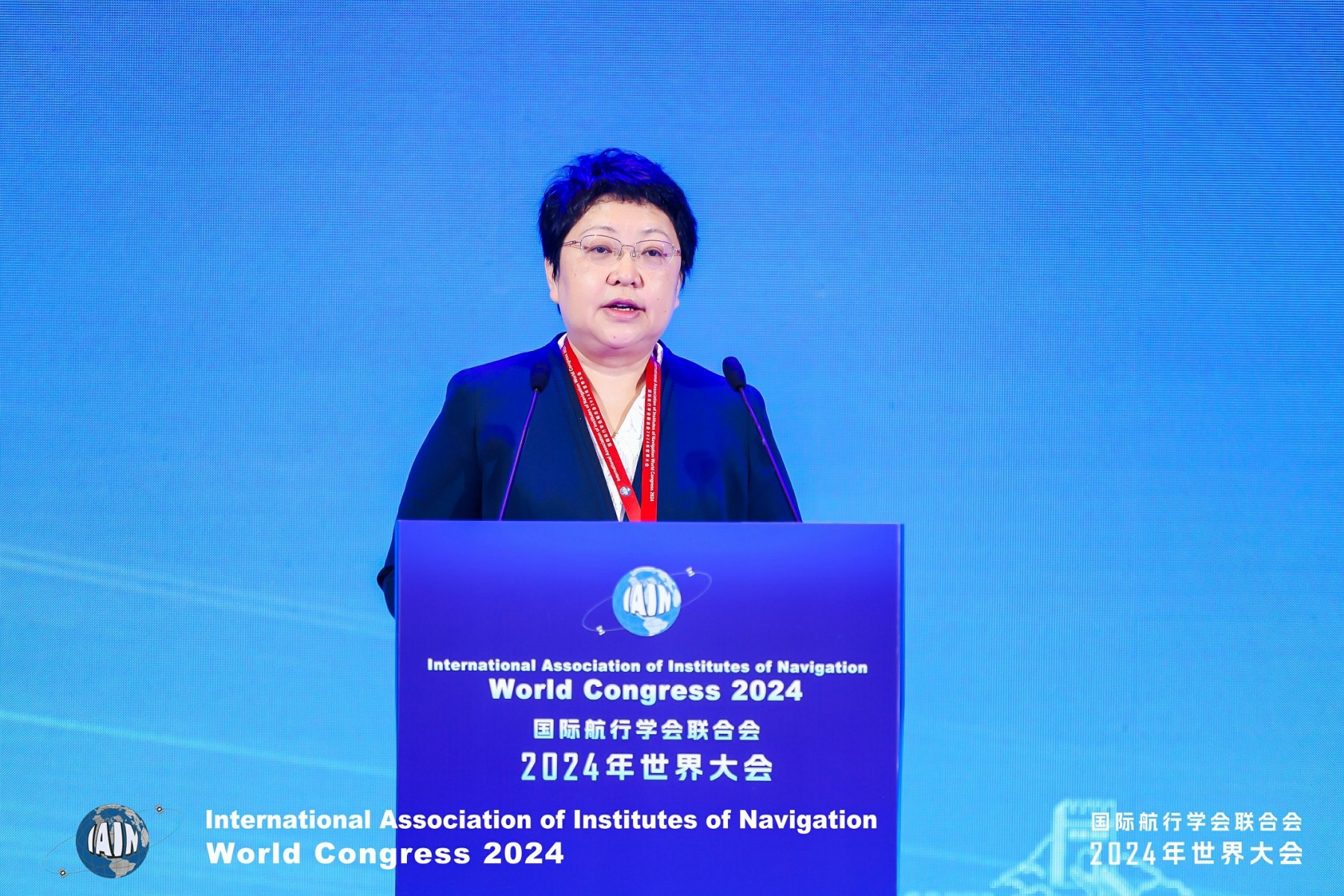
Luo Hui, Executive Secretary and Director of the Department of International Cooperation at the China Association for Science and Technology (CAST)
Luo Hui emphasized that the China Association for Science and Technology (CAST), as the largest scientific and academic community in China, supports national societies in organizing high-level academic exchange activities within China and in establishing mechanisms and platforms for international scientific exchanges. This effort aims to foster trust and cooperation within the global scientific community. To address the challenges of new technological revolution and changing global environment, the development of the global navigation industry increasingly demands enhanced cooperation, uniting global technology innovation resources, and jointly promoting the sharing of global knowledge.

Cen Yanqing, Director of the Department of International Cooperation of Ministry of Transport of China
Cen Yanqing stated that China has consistently committed to promoting innovation and development in the navigation sector, making it one of the world’s leaders in shipping infrastructure, cargo, and fleet size. In today’s world, advancements in navigation technology are crucial for the development of intelligent transportation. China places great importance on the advancement of smart transportation. As new technologies like big data, the internet, and artificial intelligence being deeply integrated with China’s transportation industry, the vision of intelligent transportation are coming into reality.
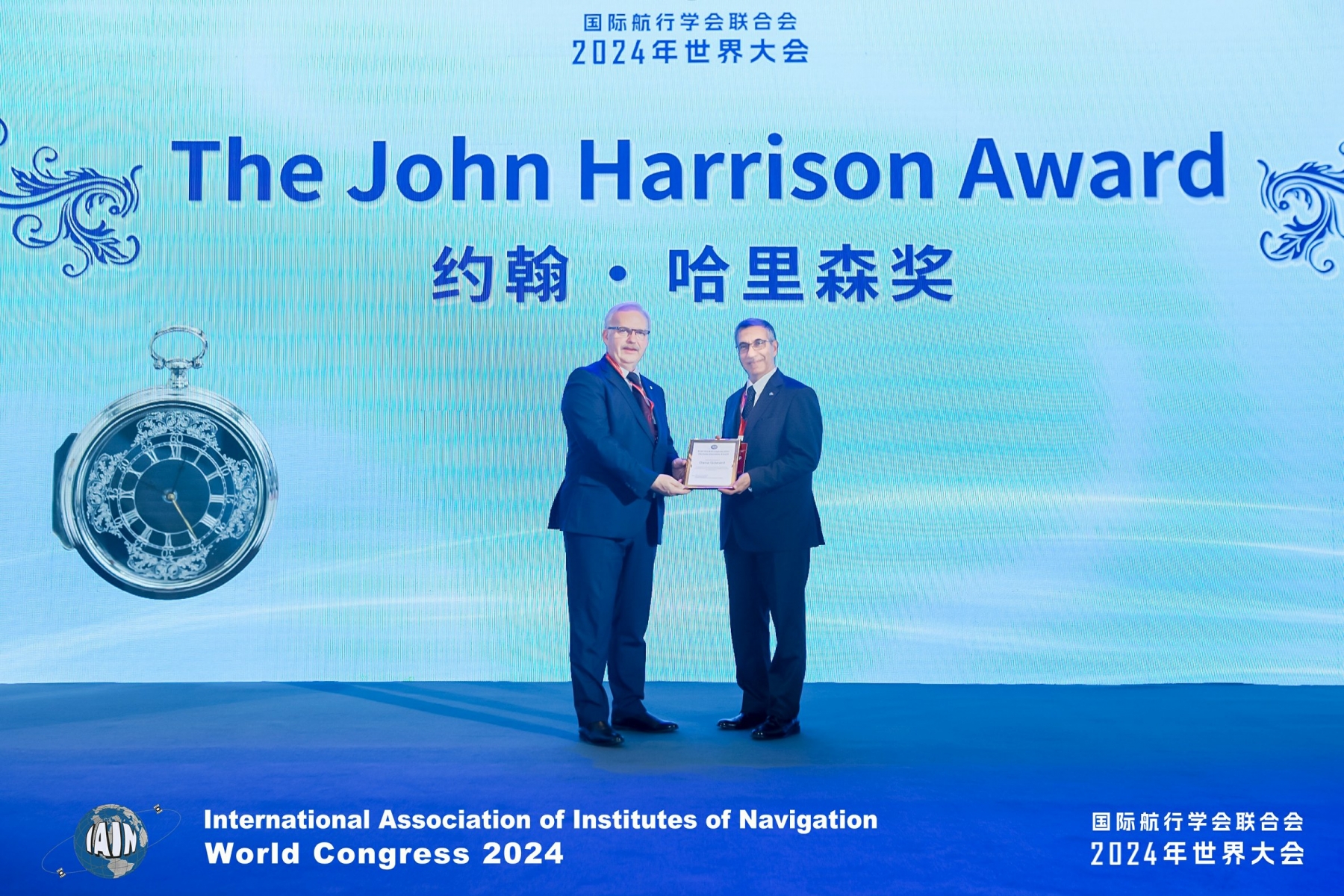
The John Harrison Award
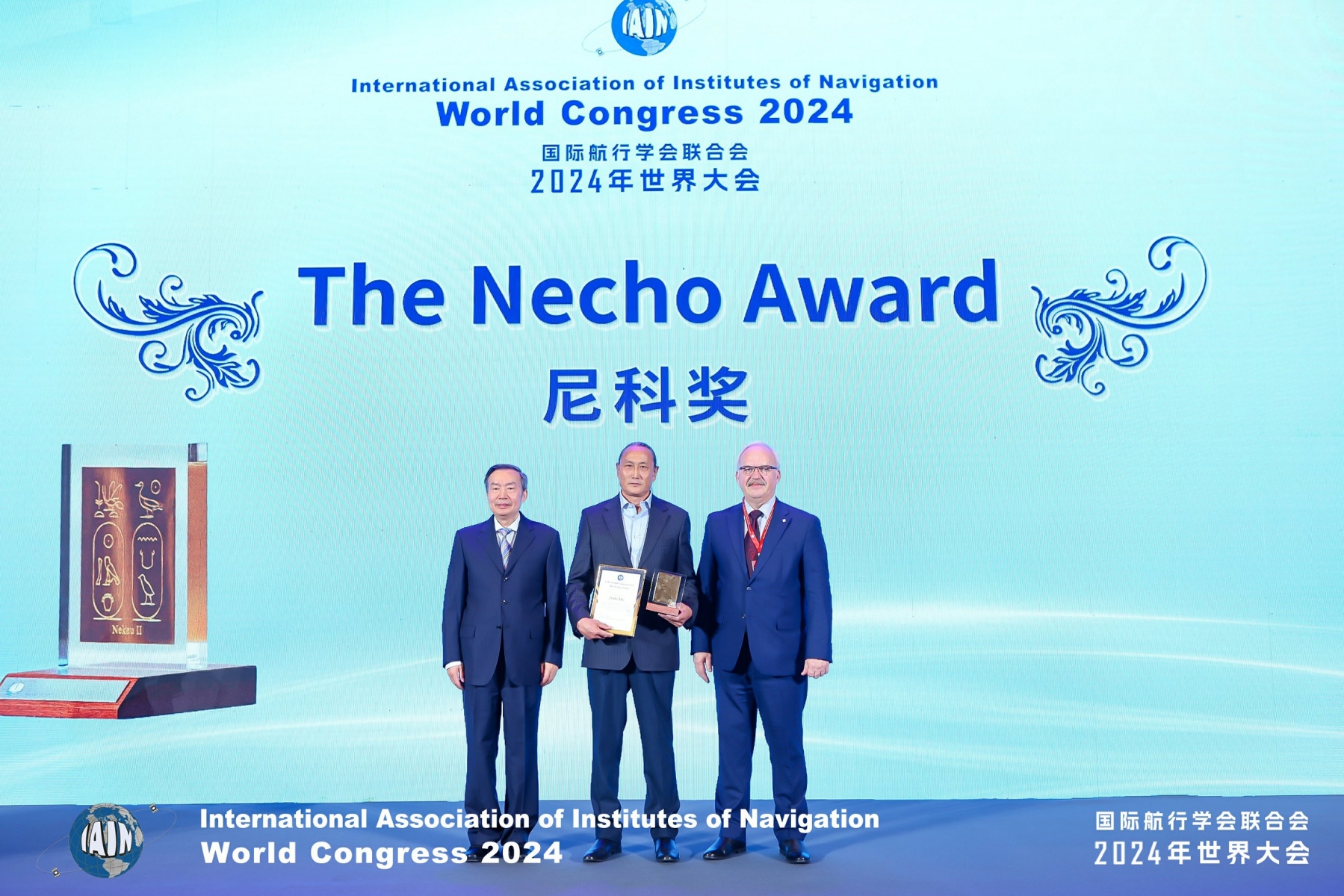
The Necho Award

Honorary Membership
At the opening ceremony, the IAIN presented the John Harrison Award (Lifetime Achievement Award), the Necho Award (Special Achievement Award), and the Honorary Membership Award. The Chinese sailor of circumnavigation, Zhai Mo, won the Necho Award, marking the first time a Chinese person has received this honor. Dana Goward, President of the U.S. Resilient Navigation and Timing (RNT) Foundation, received the Harrison Award, while former IAIN President John Potter and former Secretary-General Simon Gaskin received Honorary Membership Awards.
In recent years, China’s navigation technology has achieved remarkable global recognition. In September, China successfully launched the 59th and 60th Beidou navigation satellites, further enhancing the reliability and service performance of the Beidou-3 system. These new satellites feature technical upgrades, including an advanced onboard atomic clock configuration and new inter-satellite link terminals, ensuring the smooth operation of the Beidou-3 system. The Beidou system now serves over one billion users and is compatible with satellite navigation systems of other countries and regions.
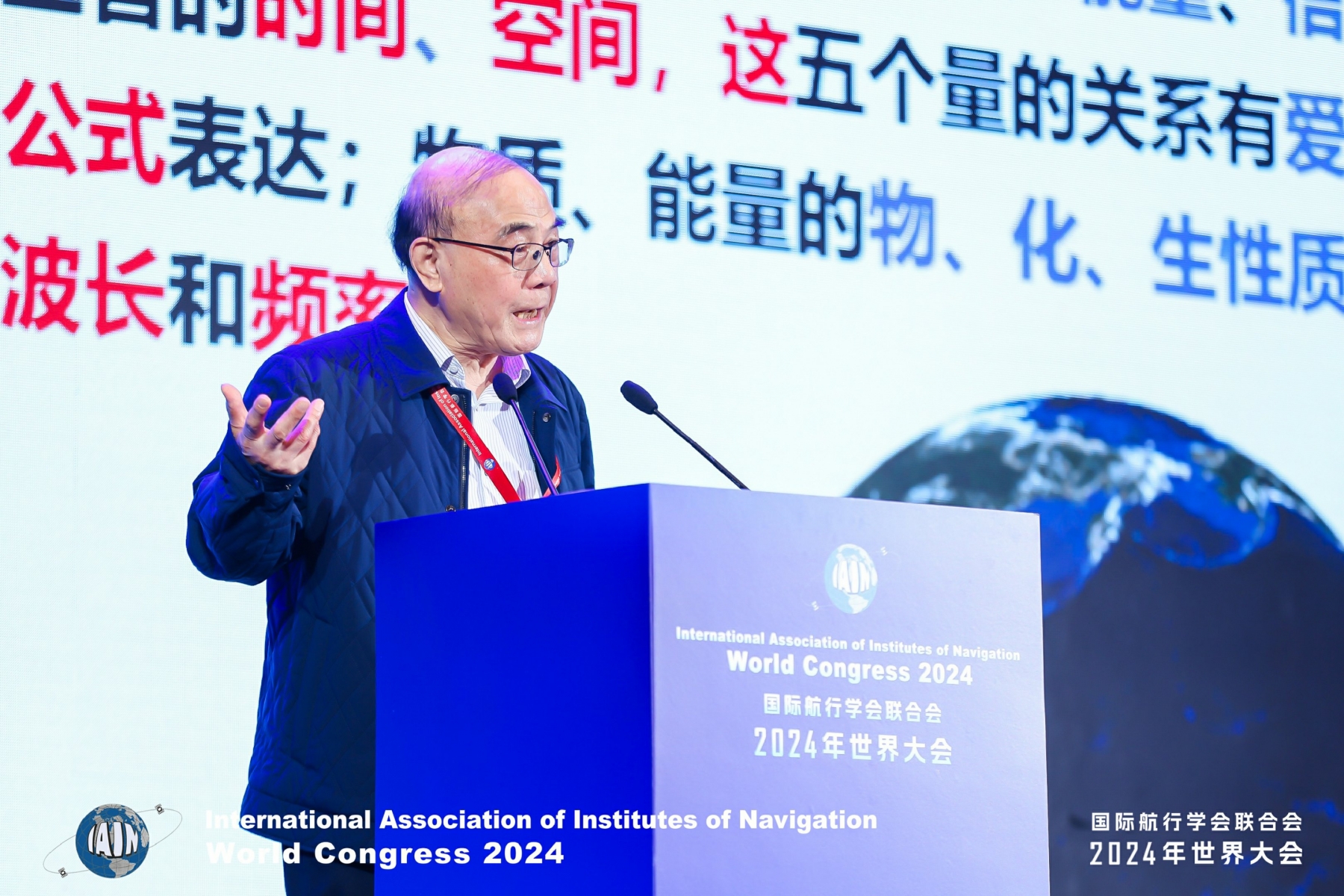
Liu Jingnan, Academician of the Chinese Academy of Engineering and Director of National Engineering Research Centre for Satellite Positioning System, introduced the architecture and application of Beidou Navigation Satellite System
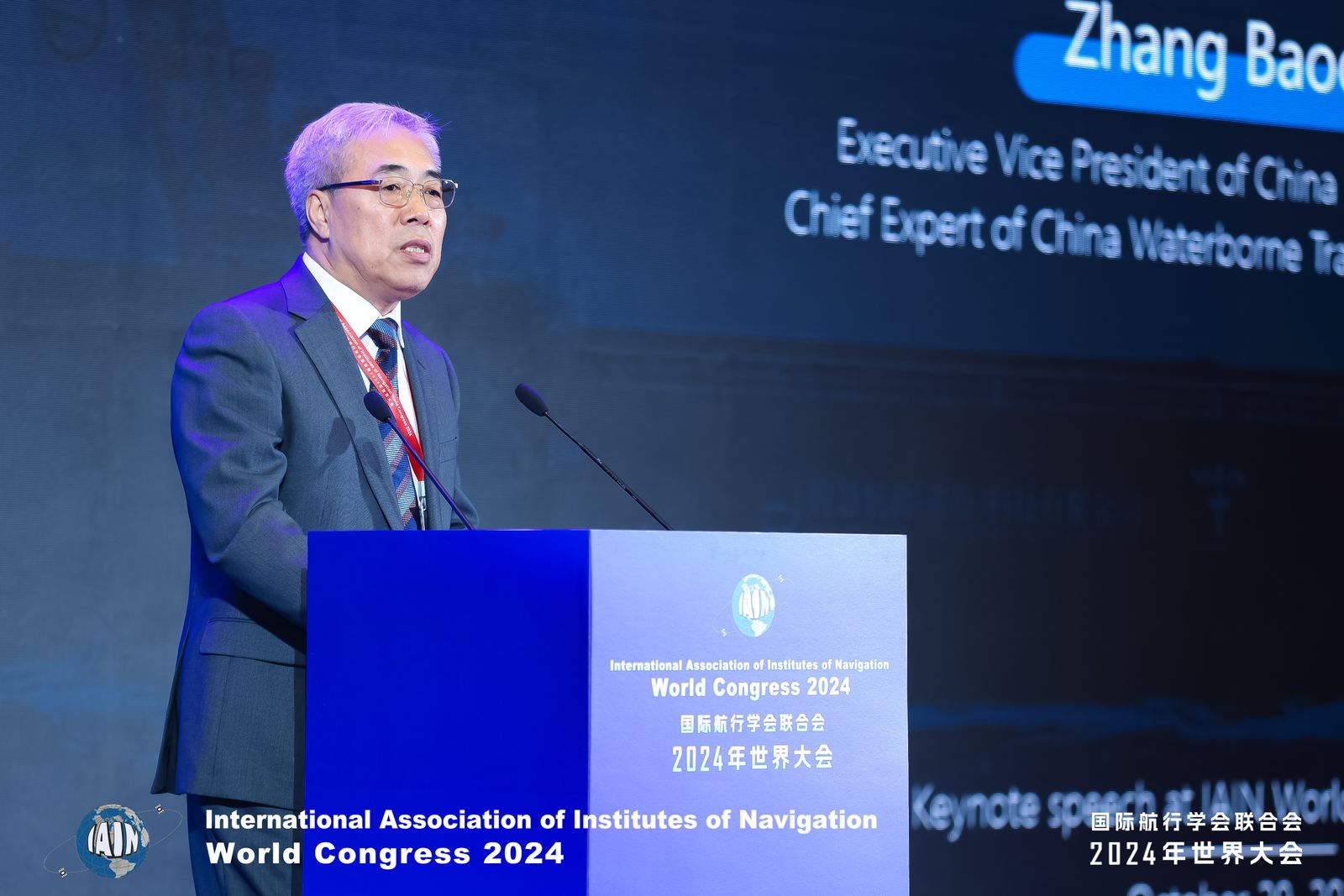
ZHANG Baochen, China’s autonomous navigation expert and Executive Vice President of the China Institute of Navigation, introduced the latest technological developments in autonomous ship navigation.
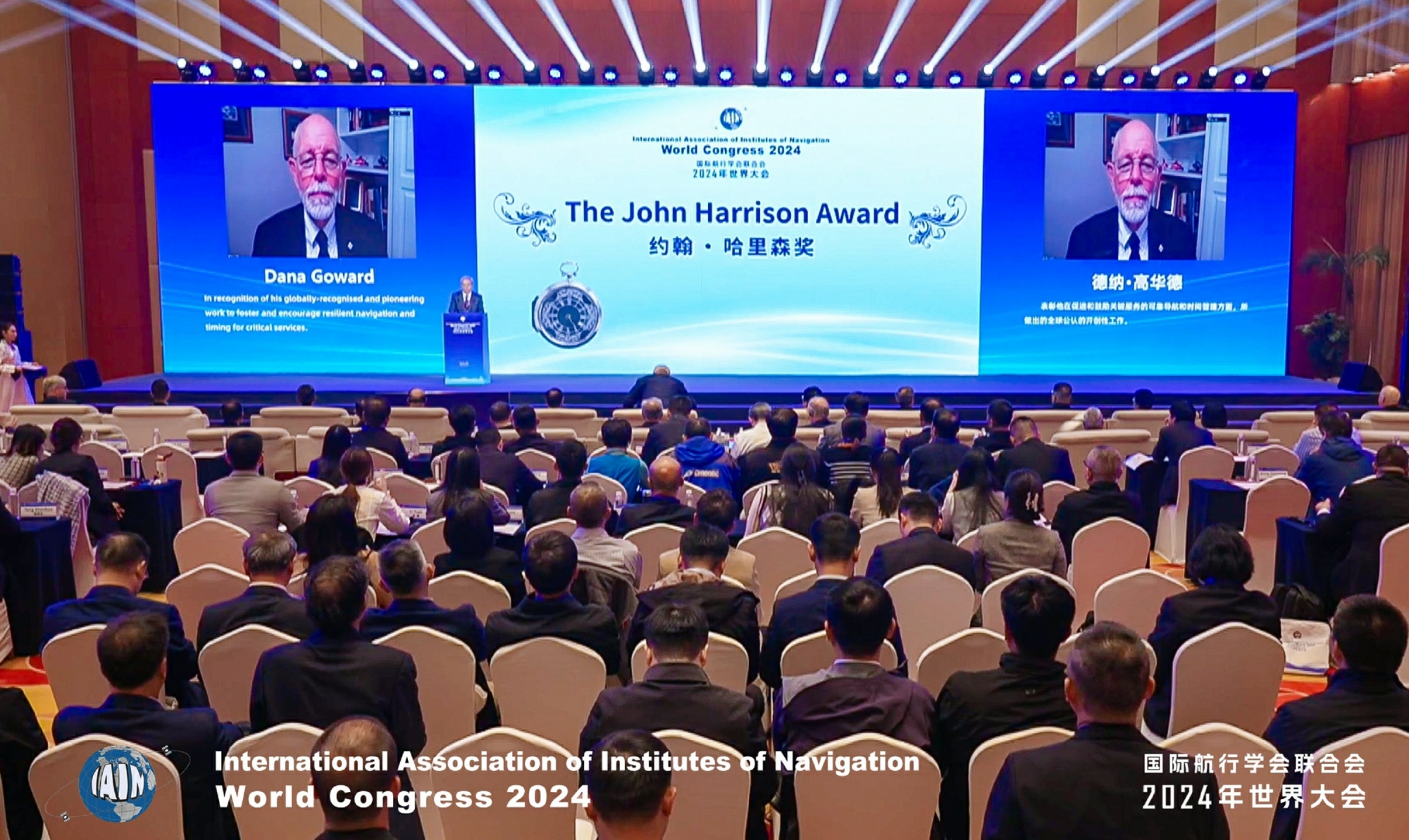
Dana Goward, President of the U.S. Resilient Navigation and Timing (RNT) Foundation

Salvatore Gaglione, Vice President of IAIN and Council Member of the Italian Institue of Navigation
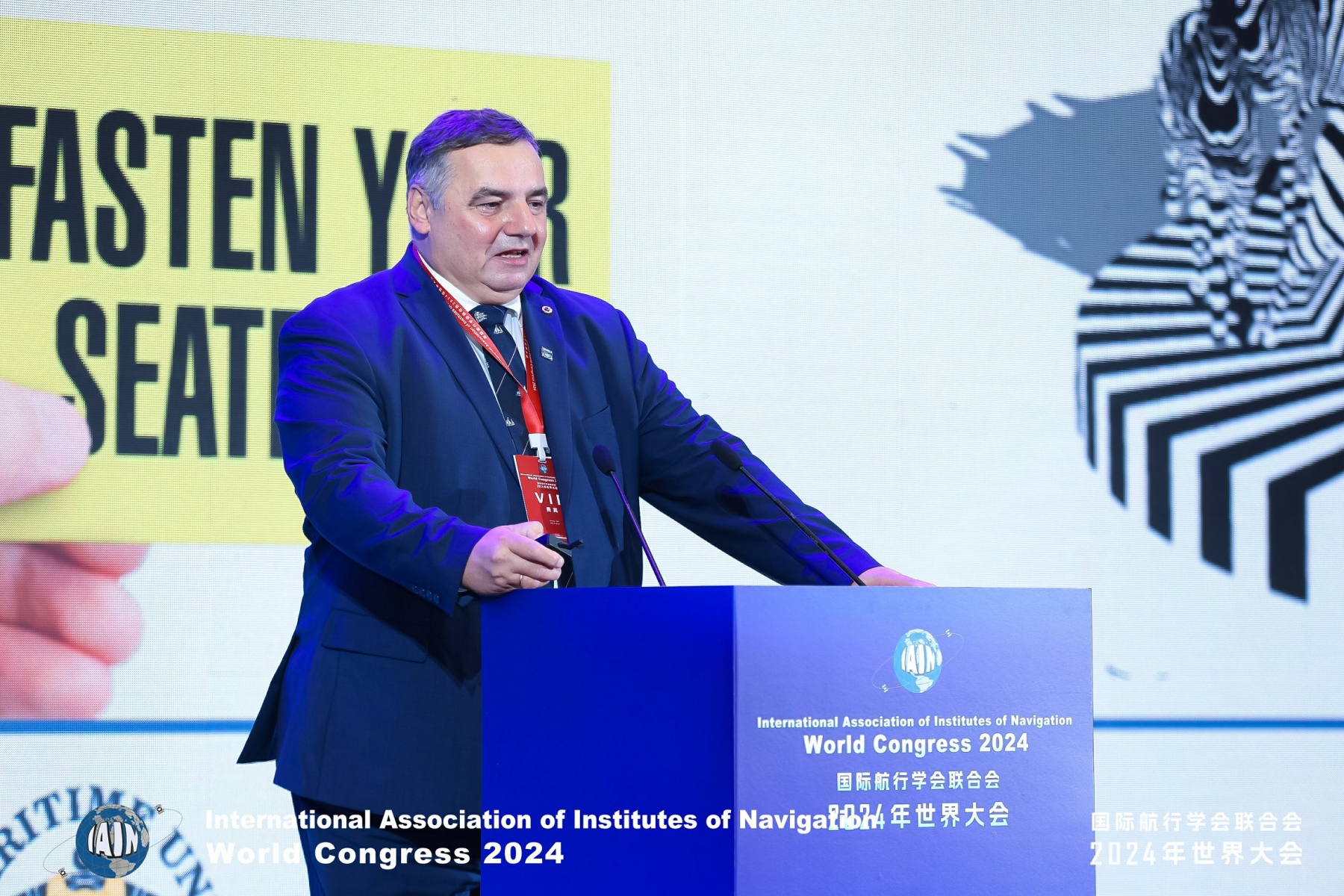
Adam Weintrit, Rector of the Gdynia Maritime University

Bart Banning, Vice President of IAIN and President of the Netherlands Institute of Navigation
Experts from the United States, Italy, Poland, and the Netherlands delivered speeches on topics about the latest developments in the application of navigation technology, reaction of the maritime education sector to autonomous shipping Development, navigation in aviation industry, etc.
